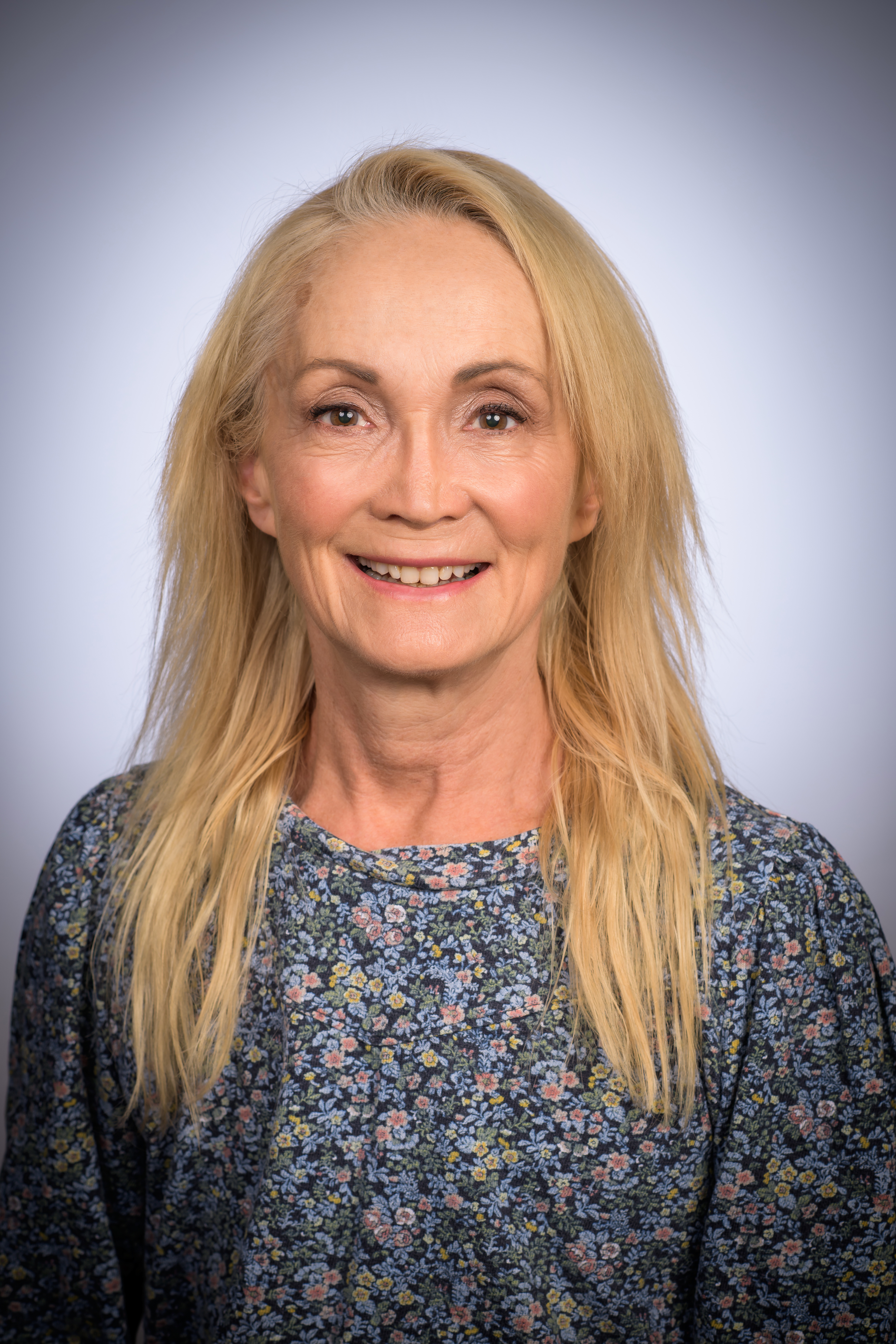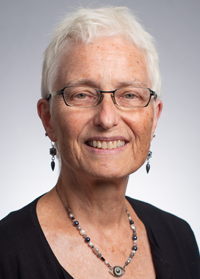The RPB David F. Weeks Award for Outstanding Vision Research (the “Weeks Award”) has been established through the generosity of Research to Prevent Blindness (RPB), an anonymous donor, and the Association of University Professors of Ophthalmology (AUPO), to annually recognize and celebrate an outstanding ophthalmic vision scientist whose research has made meaningful contributions to the understanding and/or treatment of potentially blinding eye disease. The award carries the name of David F. Weeks, former President and Chairman of Research to Prevent Blindness, in honor of his contributions to the field of vision research. The award will be presented at the AUPO Annual Meeting and will carry an unrestricted award of $50,000, payable to the recipient directly and to be used at his or her discretion.
Nominations will re-open in 2026
2025 RPB David F. Weeks Award for Outstanding Vision Research

University of Alabama, Birmingham
"Inside Out Solutions: Using Gut-target Approaches to Treat Ocular Diseases"
The Grant laboratory investigates the growth and organization of vascular endothelial cells both in health and aberrant angiogenesis with the goal of understanding mechanisms responsible for ocular neovascularization and diabetic retinopathy. The laboratory focuses on under-standing vascular repair mechanisms involving the role reparative bone marrow derived cells and vascular wall derived stem cells. They have examined the dysregulated systemic and intestinal renin-angiotensin system and its impact on gut barrier permeability, gut-derived immune cell activation, systemic inflammation, and progression of diabetic retinopathy in human subjects. Using animal models of both type 1 and type 2 diabetes, they showed that maintaining intestinal angiotensin converting enzyme-2 (ACE2) expression prevented and reversed diabetic retinopathy emphasizing the multifaceted role of the intestinal renin-angiotensin system in diabetes and diabetic retinopathy. Recently, the lab examined the impact of the microbiome and bacterial metabolites on the progression of diabetic retinopathy and examined the importance of tryptophan absorption and metabolism in the correction of gut barrier dysfunction and modulation of hematopoiesis in diabetes to prevent diabetic retinopathy. This work seeks to identify nutraceuticals that can be used to treat diabetic retinopathy and diabetic macular edema. The laboratory has had continuous funding from NEI since 1989 with many of these grants being multi-PI grants emphasizing Dr. Grant’s strong belief that “team science” is necessary to make significant discoveries. The work from the laboratory has resulted in over 280 publications. Dr. Grant has mentored numerous graduate students, medical students, post-doctoral associates, and undergraduates, many of whom have continued in Academic Medicine.
Award Information
Eligibility
Nominees for the Weeks Award must fulfill the following criteria:
- Must be US citizens or permanent residents of the US and doing research in the US
- Well-established, senior level investigator with documented history of conducting eye and vision research
- MDs, PhDs, or MD/PhDs are eligible
- Must be PI (Principal Investigator) on an active NIH grant
- Embodies the following qualities:
- Has demonstrated excellence in vision research that is basic, clinical, or translational in nature
- Has brought about outstanding innovation in and/or advancement in vision research as manifest by outstanding publications
- Has exemplified the highest principles of scientific research and leadership
- Has made contributions in research within the last five years; that is, the Weeks Award is not an honorific for research contributions made for many years previously
- Nominees are NOT required to be Members of AUPO nor their institutions members of AUPO
- Nominees can be from academic or non-academic institutions
- Nominees can be from departments other than ophthalmology, but for academic institutions, the nomination must be made by the Ophthalmology Department Chair and for non-academic institutions, the nomination must be made by the Research Director or ranking scientist
- For Department Chairs in academic institutions and Ranking Scientist in non-academic institutions to be eligible for the Weeks Award, they must be nominated by a person of equal or higher rank from another institution.
Special consideration in the selection process will be given to:
- Recognition of current research activities, not simply the length of service or contributions made many years previously
- Innovative and outstanding work that has significantly advanced the field
Nominations
Candidates must be nominated by the Ophthalmology Department Chair in academic institutions or by the Research Director or ranking scientist in non-academic institutions
The Application Packet must include the following items (10 pt. font or greater):
- One (1) letter maximum (not to exceed three pages) from the Ophthalmology Chair in academic institutions or Research Director or ranking scientist in non-academic institutions, summarizing the Nominee’s special qualifications for the Award and verifying that, if awarded:
- the award will be granted directly to the Awardee and not counted against normal compensation or deposited in department accounts
- the Awardee will attend the Annual Meeting of the AUPO to receive the Award and provide a lecture at the AUPO Annual Meeting the year after receiving the award
- Two (2) supporting letters maximum (each not to exceed two pages) from established scientists, mentors, and or leaders in the nominee’s field of interest
- A copy of the Nominee’s current Curriculum Vitae
- A copy (pdf) of the three papers in the past 5 years which exemplify the advance being considered for the award
- A signed letter from the Nominee (not to exceed two pages) summarizing the Nominee’s recent accomplishment(s) in vision research and plans for future research. The Nominee must also agree in the letter to address the Annual Meeting of the AUPO the year after the Weeks Award is given.
- The application packet must be compiled by the Ophthalmology Department Chair for academic institutions or the Research Director or ranking scientist from non-academic institutions and submitted electronically by June 1.
Selection Process
- All completed applications will be reviewed by a Selection Committee, consisting of Chairs and Directors of Research from Departments of Ophthalmology, and a recommendation forwarded to the AUPO Board of Trustees for approval.
- The Awardee will be notified in August.
Past Recipients
2024

Harvard Medical School, Mass Eye & Ear
"We Need to Move “Upstream" from Complement to Prevent/Treat Dry AMD: Protecting the RPE from ox-Lipid-induced Damage"
2023

Vanderbilt University Medical Center
2022

Johns Hopkins
The Wilmer Eye Institute
"From Retinal Development, to Degeneration, and Hopefully to Therapeutics"
2021

University of Rochester
"Seeing Through the Retina"
2020

University of Alabama at Birmingham
"Telling the Untold Stories of Geographic Atrophy Via Histologically Validated Clinical Imaging"
2019

University of Virginia School of Medicine
"The Inflammasome is a Target for Macular Degeneration"
2018

University of Iowa
"Recent Insights into the Immune System in Age-Related Macular Degeneration"